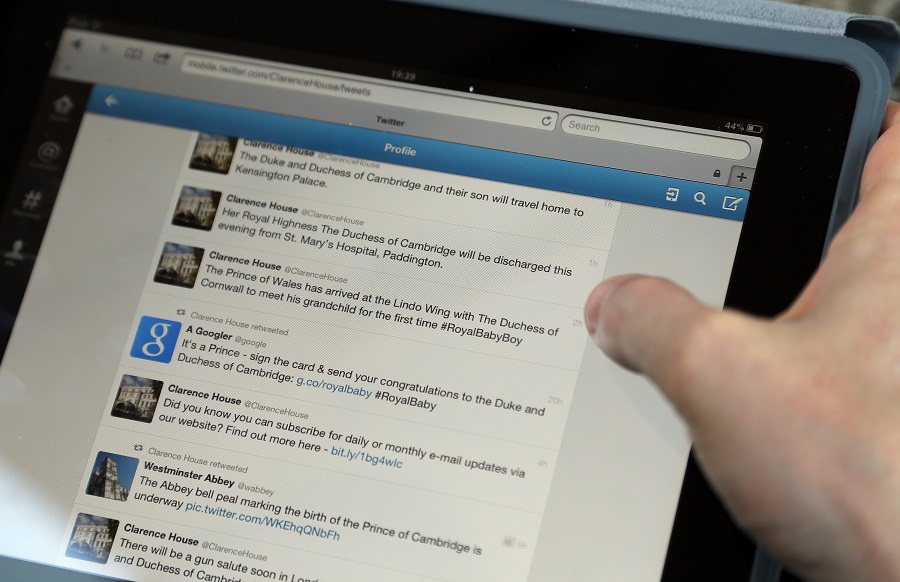منذ قرابة ست سنوات، لم تتوقف شركات التكنولوجيا الحديثة عن إطلاق وتمويل مشاريع ومبادرات بمسميات وأشكال مختلفة بهدف مكافحة الأخبار الزائفة والمعلومات المضللة على الإنترنت. لكن المشاريع التي عملت عليها الشركات ودعمتها لسنوات، لا يبدو أنها استطاعت تقليل انتشارها بالشكل المطلوب.
وبلغت ذروة الاهتمام بقضية المعلومات المضللة مع انتشار وباء كورونا الذي تزامن مع جائحة رقمية (1) من الأخبار والمعلومات المتشككة بوجود الفيروس، وطرق التعاطي معه، مما أثر على نسب انتشاره. يضاف إلى ذلك الكم الهائل من الأخبار الكاذبة التي أثرت على مصداقية نتائج الانتخابات الأمريكية، مما فتح الباب أمام انتقادات واسعة (2) طالت شركات التكنولوجيا الحديثة من قبل سياسيين وزعماء عالميين.
قد يكون التعاطي مع هذه القضية اتّخذ طابعًا أكثر جدّية مؤخرًا، إلا أن الفجوة بين انتشار الأخبار الزائفة والسعي إلى الحد من انتشارها لاتزال كبيرة، حيث تحاول الشركات التخلص من عبء إيجاد حلول تقنية فعّالة بإلقاء المسؤولية على الصحفيين وغرف الأخبار.

"واجبنا جميعًا"
على موقع مبادرة فيسبوك من أجل الإعلام (3) تدّعي الشركة أن الجميع يتحمل مسؤولية مكافحة الأخبار الكاذبة، وتعني بالجميع؛ شركات التكنولوجيا، وشركات الإعلام، وغرف الأخبار، بل وحتى المدرسين عليهم كذلك أن يضطلعوا بدورهم لمواجهة الأخبار الكاذبة.
وتسعى شركة تويتر عبر مبادرة "بيرد ووتش" (4) الجديدة إلى خلق "نهج جديد" يحرك المجتمع للمساعدة في معالجة المعلومات المضللة على المنصة، ويعتمد على قيام المستخدمين بتحديد المعلومات في التغريدات التي يعتقدون أنها مضللة.
كما تعمل مبادرة مختبر غوغل للأخبار (5) على بناء التحالفات وتطوير الشراكات وإجراء الأبحاث وتنظيم التدريبات لتمكين المنصات الإخبارية الرقمية وغرف الأخبار من تعزيز جودة التقارير ومحاربة المعلومات المضللة.
تشترك هذه المشاريع بترسيخها لفكرة أن محاربة الأخبار الزائفة والمعلومات المضللة ليست مسؤولية الشركات التقنية الحديثة، إنما هي مسؤولية الصحف والصحفيين بل وحتى المجتمع ككل، وما على الشركات إلا المساهمة في توفير التقنيات والأدوات الداعمة كي يتمكن الصحفيون من محاربة الأخبار الزائفة التي تحظى بالانتشار الفيروسي الواسع على هذه المنصات.
أحد أهم الأصوات التي هاجمت شركات التكنولوجيا الحديثة لعدم اتخاذها إجراءات ذاتية للحد من انتشار الأخبار المضللة، كان الملياردير ورائد الأعمال الأمريكي بيل غيتس (6). قال غيتس في أحد تصريحاته العام الماضي: "عندما تدع الناس يتواصلون، عليك أن تتعامل مع حقيقة أن بعض الأشياء غير الصحيحة يمكن أن تنتشر بسرعة كبيرة مقارنة بالحقيقة". ويرى غيتس أن شركة فيسبوك، مالكة تطبيق واتس آب، تعمّدت القيام بعملية تشفير الرسائل حتى لا تتحمل أي مسؤولية متعلقة بالمحتوى الذي يتم تناقله عليها.

الحل في يد الشركات
تفتح انتقادات غيتس المجال أمام مجموعة من الأسئلة حول المسؤولية الحقيقية لمحاربة المعلومات المضللة؛ فهل تعجز تقنيات هذه الشركات عن محاربة الأخبار الزائفة فعلًا؟ أم أنها تتساهل معها للحفاظ على ديمومة الفعل ورد الفعل وإبقاء الجدل دائرًا على مواقع التواصل الاجتماعي مما يتيح استهلاكًا أكبر لهذه المنصات؟
من المعلوم أن منصة فيسبوك لا تقوم بالتعامل مع جميع المنشورات فيها بطريقة متساوية، فخوارزميات المنصة تساعد على إعطاء صدى أضخم للأشخاص الذين من المحتمل أن تثير آراؤهم ردود فعل أعلى من غيرهم، وتعطي قيمة أكبر لمنشورات معينة مما يساعد بظهورها على تفضيلات المستخدمين بشكل أوسع.
خلال الانتخابات الأمريكية الأخيرة، قامت الشركات بتعديل سياساتها وخوارزمياتها (7) كي تقلل من نسبة المعلومات المضللة التي يتم تناقلها عبر منصاتها، وهي استراتيجية نجحت بشكل كبير. معنى ذلك أن ثمة حلولًا تقنية يمكن اللجوء إليها من قبل الشركات بدلًا من وضع العبء على غرف الأخبار بخلق وحدات خاصة للتحقق من الأخبار والمعلومات المضللة المنتشرة على مواقع التواصل الاجتماعي.
أحد الحلول التي أوصى مركز التقدّم الأمريكي باستعمالها هي "قواطع دائرة الانتشار" (8)، وهي تقنية تمنع الخوارزميات في مواقع التواصل، تلقائيًا، من تضخيم المنشورات عندما ترتفع عليها المشاهدات والمشاركات، مما يمنح مشرفي المحتوى في المنصات وقتًا كافيًا لمراجعة المنشورات والتحقق من محتواها. وبهذا يمكن تحديد ما إذا كان المحتوى يتضمن معلومات مضللة أم لا قبل انتشاره على نطاق واسع.
الموارد أصغر من المشكلة
شركة غوغل كانت إحدى الشركات القليلة التي أعلنت عن حجم الموارد المالية المرصودة للحد من الأخبار الزائفة، حيث قدّمت 6.5 مليون دولار (9) لتمويل مدققي الحقائق والمنظمات غير الربحية التي تكافح المعلومات الزائفة حول العالم، مع التركيز على المبادرات المعنية بفيروس كوفيد-19.
تكلّف مشكلة الأخبار الزائفة الاقتصاد العالمي أكثر من 78 مليار (10) دولار سنويًا، يذهب جزء كبير من هذا المبلغ كإعلانات ومنشورات مدفوعة على مواقع التواصل الاجتماعي خصوصًا في فترات الحملات الانتخابية، أي أن المنصات الرقمية تجني أرباحًا مباشرة وطائلة من الأخبار الزائفة على منصاتها.
ولا تبدو الموارد المالية المخصصة لحل المشكلة واعدة؛ فعلى الرغم من عدم الإفصاح عن المبالغ المرصودة للصحفيين وغرف الأخبار، إلا أن الدعم المتاح شحيح مقارنة بالأرباح المجنية وحجم الجهد المبذول من الصحفيين. كما يؤشر ذلك على التشكيك في النوايا الصادقة لإيجاد حلول حقيقية للمشكلة، حيث يجب أن تستثمر شركات التكنولوجيا بشكل أكبر في الأدوات التي تكشف الأخبار الزائفة، وتقليل الحوافز المالية لأولئك الذين يستفيدون من المعلومات المضللة.
تعتمد استراتيجية مكافحة الأخبار الزائفة على مواقع التواصل الاجتماعي حتى الآن على تعاون المنصات مع شركاء خارجيين مثل غرف الأخبار ومبادرات التحقق من صحّة المعلومات في حال كانت مغلوطة. وأحيانًا يتم توفير معلومات جديدة صحيحة مقابلها، أي المعلومات المغلوطة مقابل المعلومات الصحيحة. بيد أن هذه الاستراتيجية لا تخلق التأثير الكافي بسبب عدم انتشار المعلومات المصححة بذات قدر انتشار المعلومات المغلوطة.
وتحتاج الشركات إلى العمل على تحسين سلوك المستخدم لوسائل التواصل الاجتماعي، وتعزيز النظرة النقدية للمعلومات ومحو الأمية المعرفية، مما يتطلب توفير وإتاحة مظلة واسعة جدًا من الأخبار والمعلومات الصحيحة والمؤكدة؛ كي لا تجد الأخبار الزائفة بيئة حاضنة تنمو فيها. ويجب أيضًا الاستثمار في دعم الصحافة المهنية القوية لاسيما داخل غرف الأخبار، لتوفير صحافة عالية الجودة من أجل بناء ثقة الجمهور وتصحيح الأخبار الزائفة والمعلومات المضللة.
المراجع:












![Palestinian journalists attempt to connect to the internet using their phones in Rafah on the southern Gaza Strip. [Said Khatib/AFP]](/sites/default/files/ajr/2025/34962UB-highres-1705225575%20Large.jpeg)


























